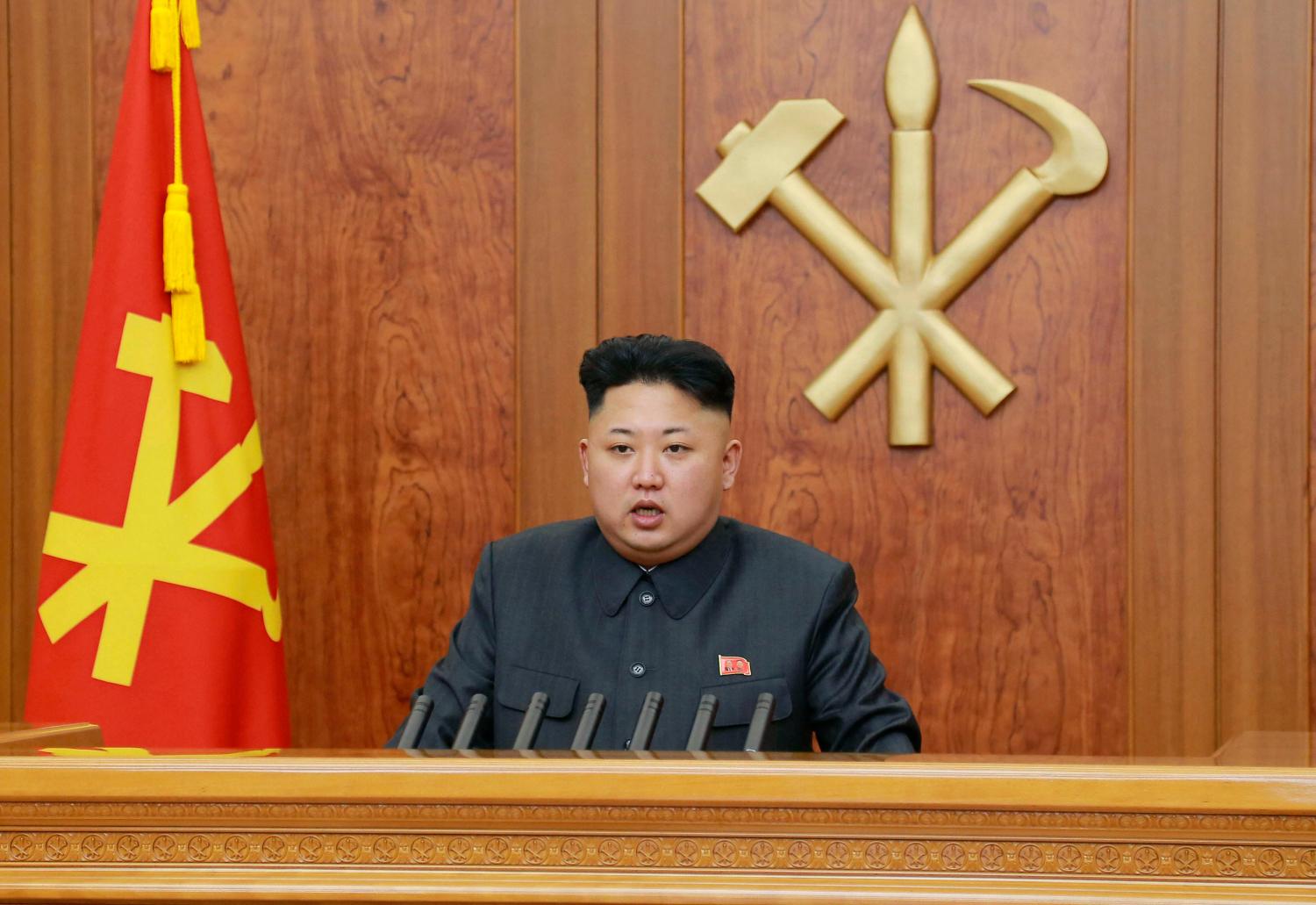North Korea’s nuclear program poses fundamental security threats for the U.S. and China. Jonathan Pollack and Richard Bush urge President Obama to convey unequivocally to China that the U.S. will uphold security and stability on the peninsula, that U.S. actions are not directed against China and that the U.S. seeks far greater cooperation with Beijing to advance these goals.
 |
MEMORANDUM TO: President Obama |
Summary and Recommendations
The latent possibilities of internal instability in North Korea or of an armed conflict between the two Korea and the attendant risks of a Sino-American confrontation persist. Quite apart from these very worrisome scenarios, the United States and China face the reality of a nuclear-armed North Korea that resists all pressures to denuclearize, is intent on expanding its nuclear arsenal qualitatively and quantitatively, and repeatedly threatens to renew provocations against the ROK. Your administration needs to redouble its efforts to pursue closer policy coordination with China, thereby reducing North Korea’s freedom of action and limiting the possibilities of an acute peninsular crisis.
Without shared understandings and parallel policies between the United States and China, the risks to regional peace and security and to the non-proliferation regime will continue to grow. At worse, we could face renewed armed conflict on the peninsula that could lead to a direct confrontation with China that neither country seeks. In the absence of meaningful cooperation with Beijing, the possibilities for a maturing political-military relationship with China could also sharply diminish.
We recommend that you personally convey to President Xi Jinping that the risks in Korea are shared risks, and represent a defining test case of building “a new model of major power relations” between our two countries. We need to emphasize to Beijing that the United States will take all necessary measures to protect its interests and those of its regional allies while also imparting that these steps are not designed to destabilize North Korea and are not directed against China. Enhanced information sharing between the United States and China offers one means by which Washington and Beijing can begin to increase cooperation and assure each other about our respective intentions. The United States should reaffirm its readiness to share intelligence about known or suspected locations of the North’s nuclear assets, fissile material holdings and the status of its missile development programs. China for its part has an understanding of internal conditions in the North that far surpasses that of any other state. We should seek China’s views of economic and social conditions in North Korea, including Beijing’s assessment of the possibilities of internal change. At the same time, we need to actively discourage Beijing from undertaking measures that could “lock in” Pyongyang’s claims to standing as a nuclear weapons state (e.g., large-scale economic assistance that insulates North Korea from external pressure).
Background
North Korea remains East Asia’s conspicuous “strategic outlier.” Its provocative behavior and adversarial policies (first and foremost directed against South Korea and Japan) have long stymied the building of a post-Cold War order in the region. These issues have been made far more worrisome by the “dual crises” involving North Korea: the continued advancement of Pyongyang’s nuclear weapon and missile capabilities; and the latent risks of internal instability in the North, including the risks of a major regional crisis if peninsular instability cannot be effectively managed. North Korea is thus both dangerous and endangered, and it represents a serious threat to the interests of both the United States and China.
From your very first weeks as president, you have consistently emphasized that North Korea must make a choice between its nuclear ambitions and its interest in reversing its long economic decline. Pyongyang has repeatedly rejected this choice, insisting that it can pursue both courses of action. Twice during your time as president (in 2009 and again in 2013), North Korea undertook nuclear tests. It has steadily enhanced its capacities for uranium enrichment, has restarted its plutonium production reactor, and has asserted a sovereign right to develop nuclear weapons. Its bellicose rhetoric in early 2013 triggered our decision for B-52 and B-2 overflights of South Korea and the deployment of a carrier battle group to the region.
China was very troubled by North Korea’s actions. The North’s third nuclear test triggered especially sharp Chinese criticisms, some of them voiced by Xi in your discussions with him at the Sunnylands meeting. For the first time, China at the highest leadership levels openly acknowledged that North Korean actions posed a direct risk to Chinese interests. Xi also signaled his willingness to cooperate more actively with the United States to oppose the North’s nuclear weapons development. However, China’s actions since Sunnylands have largely reverted to its earlier stance. Beijing yet again argues that flexibility on the part of the United States can induce Pyongyang to return to the long-dormant Six Party Talks and that the United States should be prepared to resume higher-level diplomacy with Pyongyang.
Your administration has repeatedly emphasized to China that it has no interest in resuming multilateral negotiations with the North without unambiguous evidence that Pyongyang is prepared to walk back from its nuclear weapons pursuits. The most tangible evidence of policy change by North Korea would be an outright halt to all ongoing nuclear activities, but there is no indication that it is moving in this direction.
However, Beijing remains worried that heightened pressure on Pyongyang might trigger instability in the North. At the same time, China seems to believe that North Korea will ultimately be compelled to shift its economic and political priorities. China is by far Pyongyang’s most important source of trade and investment, and it probably believes that North Korea’s growing reliance on China will ultimately provide Beijing influence over the North’s decisions. China has put forward these arguments on many occasions, but they remain unfulfilled.
If China’s strategy again fails, as we suspect it will, North Korea will become an even larger danger to regional stability. The question is whether the United States and China will prove capable of meaningful cooperation on Korean denuclearization. Washington and Beijing have very little shared experience in cooperating on security matters of vital interest to both countries. The continued development of nuclear weapons by North Korea ought to provide common ground on which both can meet. The United States, for its part, cannot acquiesce to further nuclear and missile development by North Korea, in particular the operational deployment of its nuclear weapons. This prospect directly threatens America’s core alliance relationships in Northeast Asia and undermines the essential premises of nuclear non-proliferation. It also poses acute risks to China. But China fears even more the possibility of a destabilized North Korea. This circle can and must be squared if our two countries are to prevent Pyongyang from exploiting Sino-American strategic differences for its own purposes.
The United States has a twofold task in its security discussions with China. We must impart to Beijing that we will take all necessary measures to mitigate the risks to American political and security interests and to reduce the dangers that North Korea poses to the security of South Korea and Japan. But we must also convey to China that the United States does not seek to destabilize North Korea or prevent its economic revival, should it credibly demonstrate its commitment to move toward denuclearization. This will also require assurance to Beijing that American actions are not intended to undermine Chinese interests on the peninsula.
Conclusion
Active cooperation between the United States and China to inhibit and reverse nuclear weapons development in North Korea and to caution Pyongyang from any renewed provocations are indisputable common interests of both countries. Pyongyang’s decades of nuclear defiance lends little confidence that it is prepared to accommodate to American or Chinese concerns on terms remotely acceptable to either major power. The challenge is to demonstrate to China that active cooperation serves the interests of both countries and will deny North Korea additional opportunities to advance policy objectives that the United States and China both oppose.




